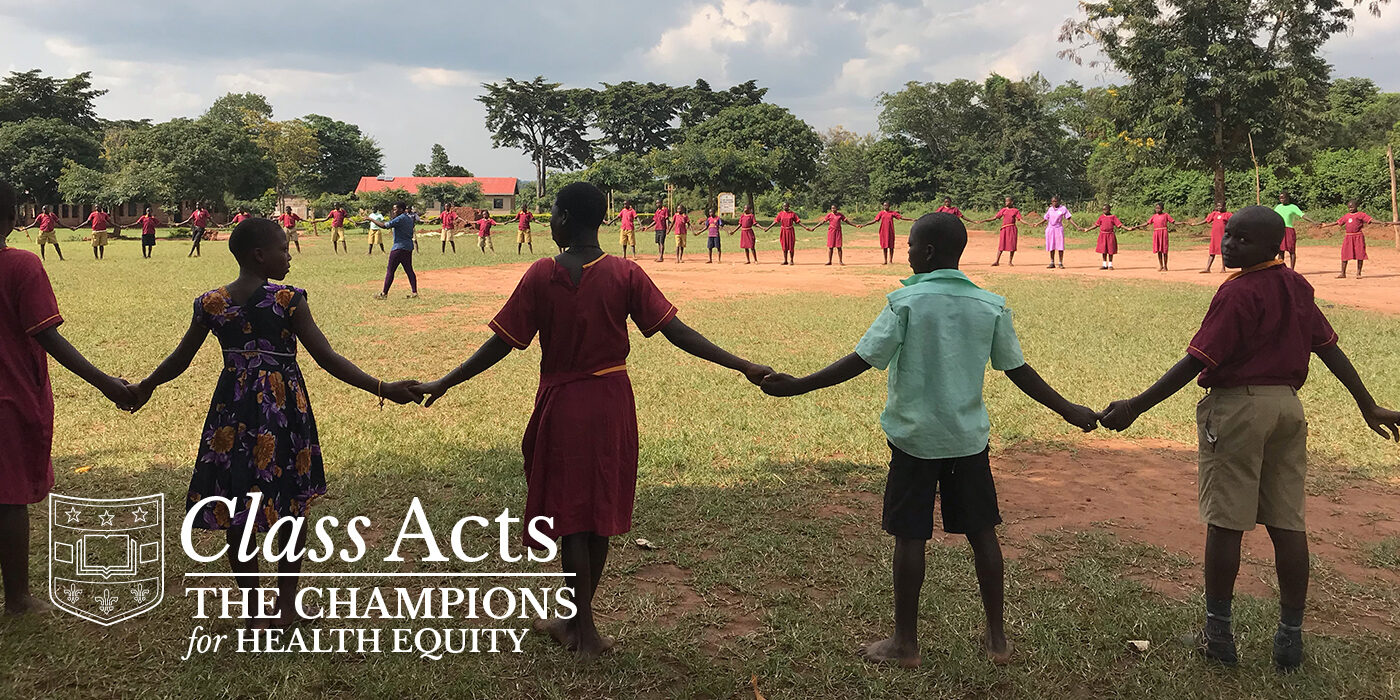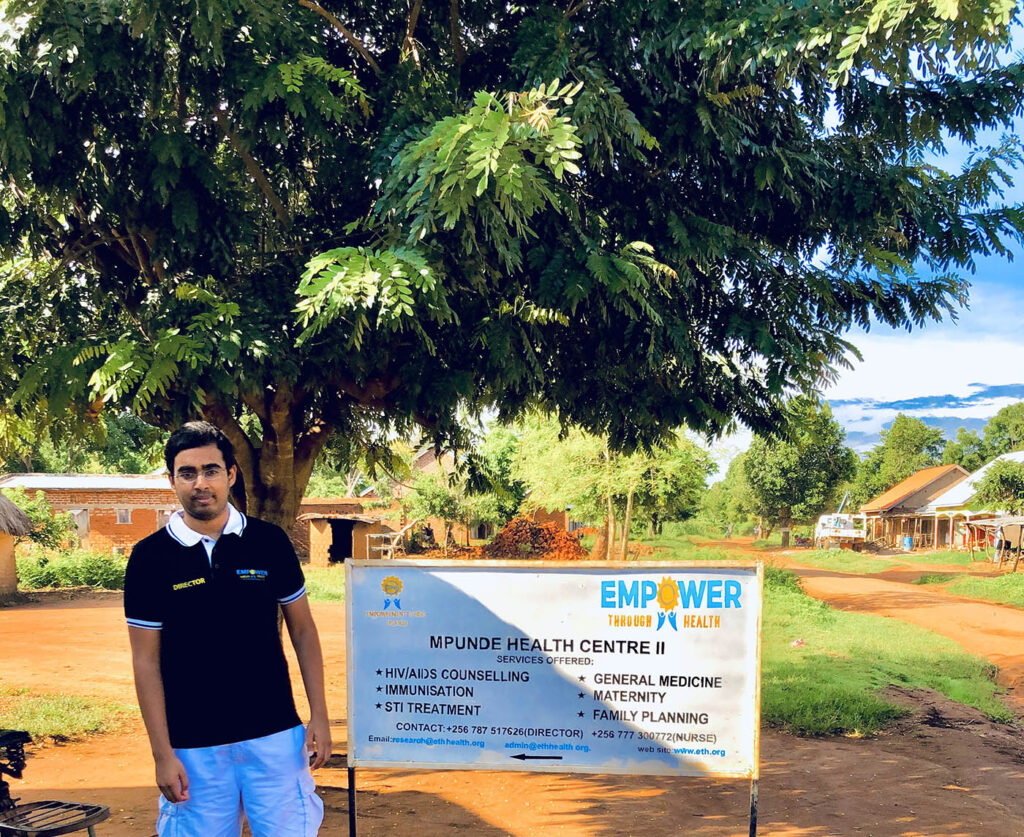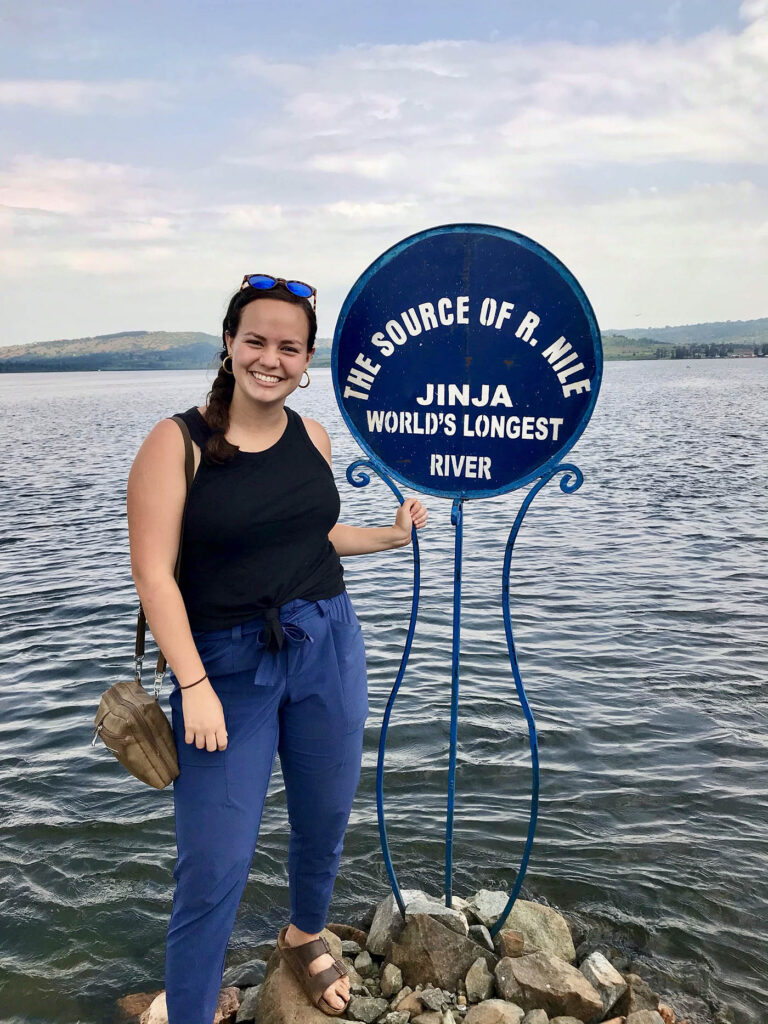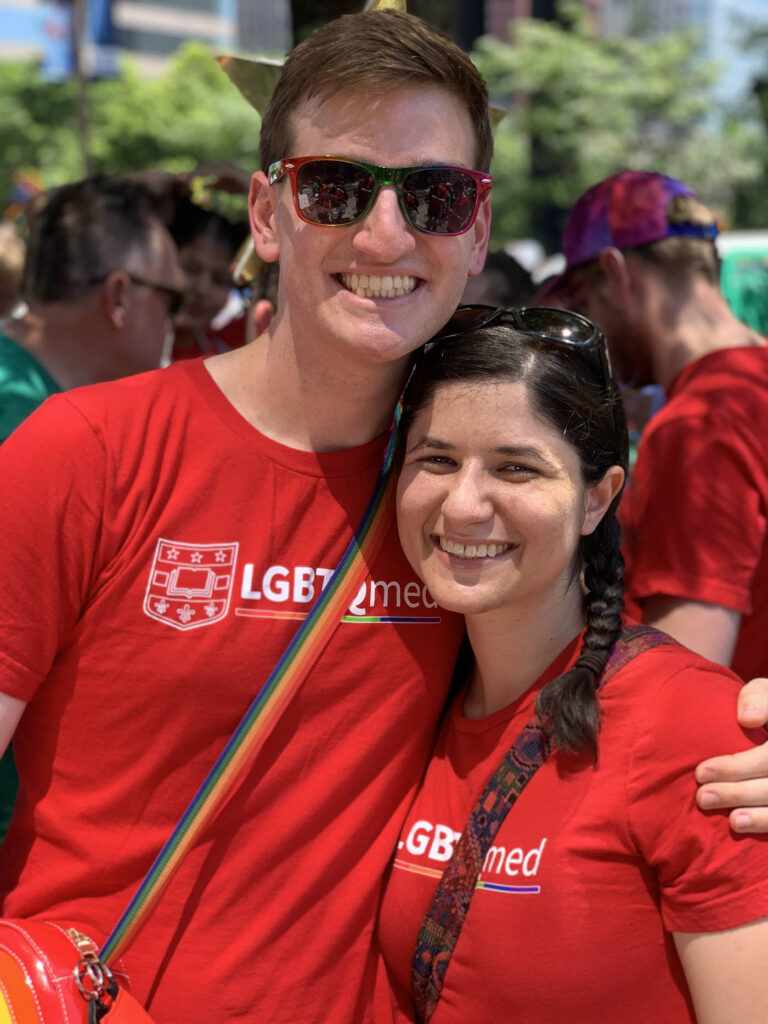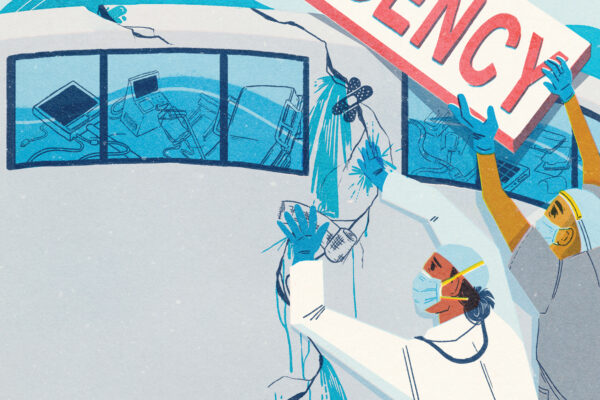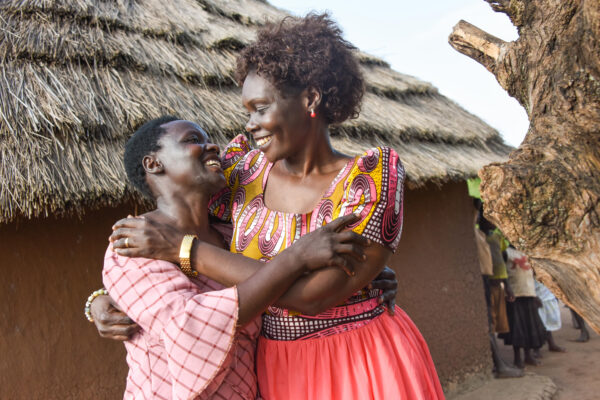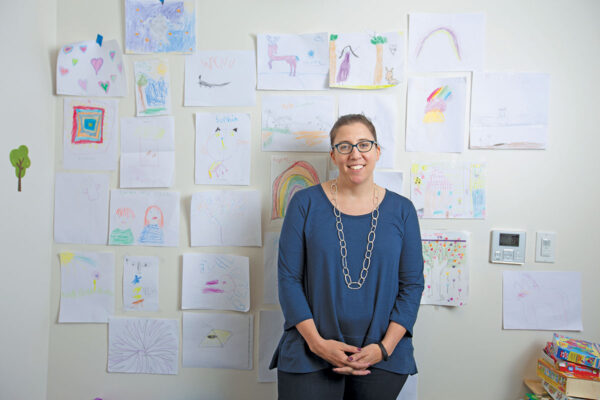This week, Class Acts celebrates graduates who are working for health equity across the globe, in their neighborhoods and in examination rooms. Meet Gautam Adusumilli and Cory French, doctor of medicine candidates from the School of Medicine, and Keishi Foecke, who is set to earn an undergraduate degree from Arts & Sciences at Washington University in St. Louis.
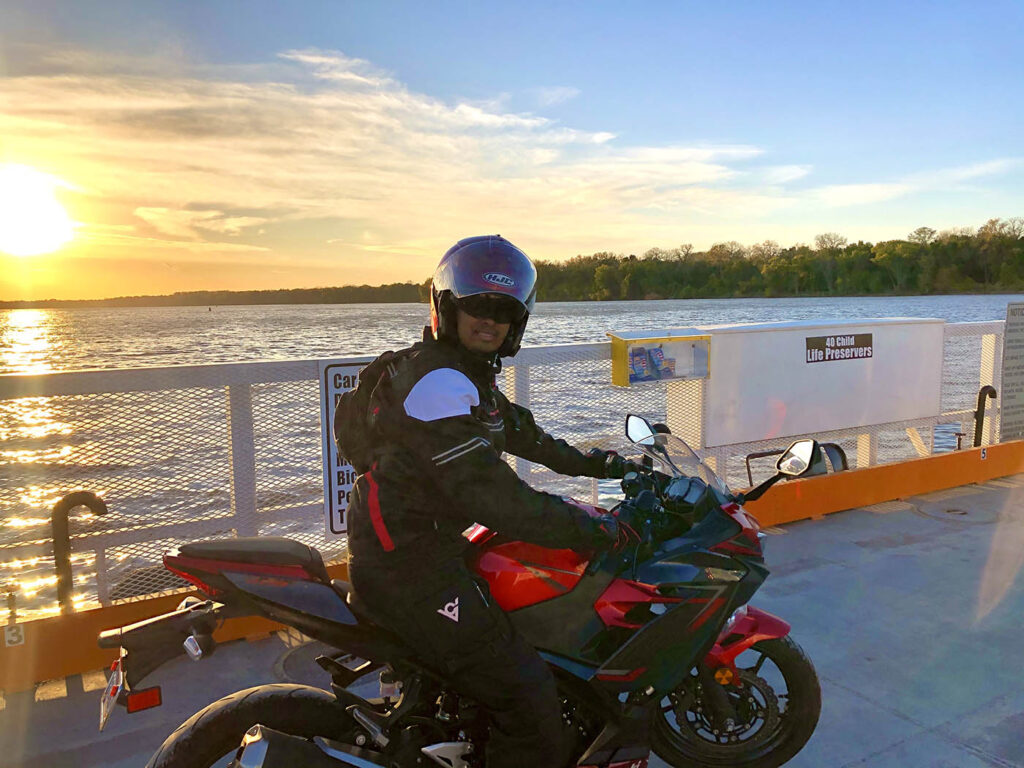
In the name of medicine, Gautam Adusumilli learned to ride a motorcycle during the pandemic. He considers the skill essential to becoming a radiologist and researcher in remote areas of the developing world.
“My passion is global health,” Adusumilli said. “Most everything I do — even taking up a new hobby like motorcycling — relates to my interest in improving access to health care and reducing the disparities afflicting marginalized, poverty-stricken communities.”
His decision to apply for residency specializing in diagnostic radiology also reflects this interest.
“I used the solitude of the pandemic to examine ways to integrate radiology into my global health ambitions,” Adusumilli said. “Radiology is a relatively untapped specialty in the global arena. This is partly due to the logistical incompatibility of imaging technology with resource-poor environments — but that is beginning to change. I believe diagnostic imaging should be a medical priority in developing countries. Without an ultrasound, how will a midwife in Uganda know that a pregnant woman about to deliver has placenta previa? How will a teenager who struggles to ride his bicycle to school know that his struggle is due to chronic rheumatic heart disease?”
In June, Adusumilli will begin residency training with a preliminary year focus on surgery in the Stanford University hospital system, followed by radiology training at Harvard University-affiliated Massachusetts General Hospital.
— Kristina Sauerwien
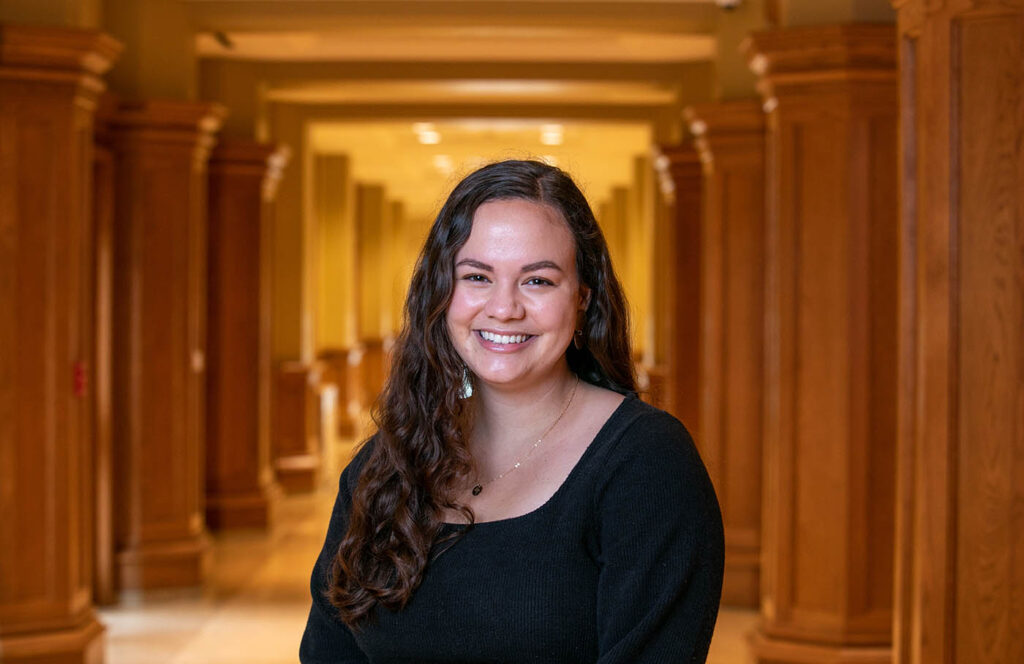
Senior Keishi Foecke’s studies in global health took her to Uganda, where she researched school absenteeism among menstruating girls and documented the nation’s burgeoning #MeToo movement.
And to her hometown of San Francisco, where she helped unhoused families during the pandemic.
And down the street to The SPOT, the School of Medicine’s youth clinic, where Foecke marketed free services to low-income and LGBT teens.
“Global health is not just about injustices that occur in faraway places,” said Foecke, who is set to graduate with a degree in anthropology from Arts & Sciences. “There are incredible inequities in our backyards, too.”
Foecke credits her mentors in the student group GlobeMed for her expansive view of global health justice. The group has a long-running partnership with Uganda Development and Health Associates, which provides reproductive and child health services and runs the menstrual dignity program program that Foecke studied. GlobeMed members also are active locally, building new relationships with St. Louis nonprofits and advocating for social and health justice reforms.
“In classes, we talk a lot about ethics, cultural sensitivity and sustainable partnerships, but GlobeMed gave me a chance to see those values in action,” said Foecke, a Gephardt Institute Fox-Clark Civic Scholar. “It’s about listening to and centering the voices of the community.”
Foecke is a 3-2 student at the Brown School and will earn her master’s in public health next year. She currently is a research assistant on a Centers for Disease Control tobacco control project and will work this summer at the CDC’s Public Health Law Program. Ultimately, she may develop public health policy in Washington, D.C., conduct research at a university or work at a nonprofit here or abroad.
“No matter what you do or where you go, understanding public health and health disparities is central to solving the big problems,” Foecke said.
— Diane Toroian Keaggy
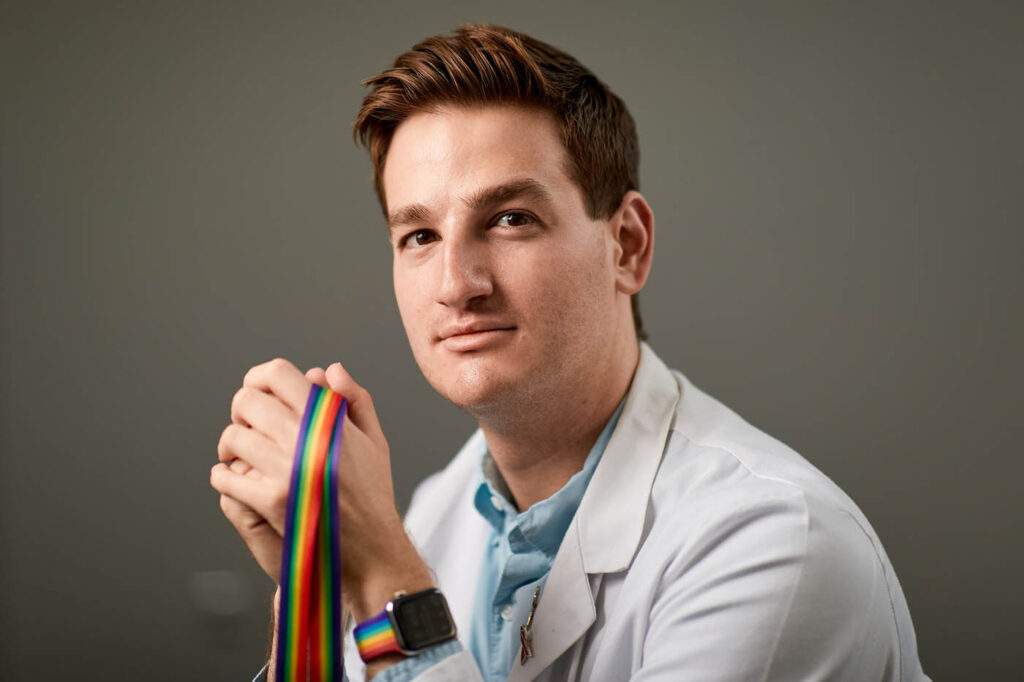
In 2019, a transgender man unknowingly led Cory French to his calling in medicine.
French was a third-year medical student working on a clinical rotation in gynecologic oncology when he recognized terror in the patient’s eyes. “It was the same paralyzing fear that had characterized the start of my life as a closeted gay man,” French recalled. “Even now, after coming out a decade ago while I was in high school, that fear never leaves me, and I must continue to fight every day to escape its influence.”
The patient was about to undergo an examination of the cervix, vagina and vulva for precancerous or cancerous lesions.
“It was here, in this moment at the intersection of identity and clinical care, that I knew that I had found my home in obstetrics and gynecology. Nowhere else in medicine is there such an entanglement of social identity, and nowhere else can I better use my own history to enable my patients to navigate their own care.”
This summer, French will begin training in the Beth Israel Deaconess Medical Center obstetrics and gynecology residency program at Harvard Medical School. “I’m particularly focused on advocating for vaccinations and screenings to prevent cervical cancer in queer patients, as well as understanding pelvic cancer risks for transgender patients on hormone therapies,” he said.
During and after his training, French said, he will continue leading advocacy efforts in LGBTQ+ medical groups, while also developing lessons that address gaps in gender and sexual minority representation in medical education.
A question posed by that patient exposed such gaps. “He asked me if his testosterone therapy served as birth control, and I had no answer,” said French, clarifying that it does not act as birth control. “I intend to spend my career breaking down barriers and building the empathy needed to eliminate the stigma around gender.”
— Kristina Sauerwein
